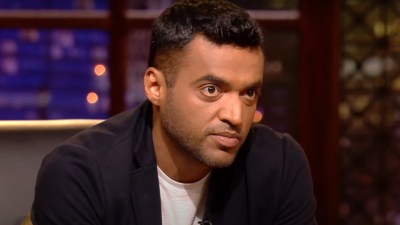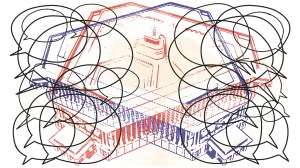England8217;s Football War
London, June 19: Is England -- not Scotland or Wales -- a country of drunken yobbos', marauding armies of football thugs with an easy att...

London, June 19: Is England 8212; not Scotland or Wales 8212; a country of drunken yobbos8217;, marauding armies of football thugs with an easy attitude to mindless violence? Is there something in English culture which tolerates excessively bad behaviour? These are question being asked and answered in the flurry of uncharacteristic introspection which has grabbed this country since its football team was put under threat of expulsion from Euro 2000.
UEFA, European Football8217;s governing body, has threatened to throw England out of the Euro 2000 tournament if England fans caused any more trouble.England8217;s beer-fuelled army of football fans, armed with the flag of StGeorge and missiles made of anything from bottles to chairs from bars andcafes, conducted a pitched battle last weekend against supporters of theGerman side and Belgian police.
They were in Belgium for the England-Germany fixture last Friday, whichEngland won 1-0, beating Germany for the first time in 34 years. Celebrationsthat should have followed this victory were marred by violence which is nowan expected end to England8217;s football matches abroad. Two years ago, afterEngland8217;s first match in the World Cup in France, England supporters attackedFrench businesses and destroyed cafes and bars in which they had, only a fewhours before, been drinking.
And last month, supporters of Leeds United Football club clashed with Turkish supporters of Galatasaray in Istanbul, where two English fans were killed, and later in Copenhagen, supporters of London8217;s Arsenal Football Club clashed with Galatasaray fans.
Lennart Johansson, the President of UEfA, said: quot;If it happens again 8230;it is over for England. This cannot go on any longer, it is killing football8230; We cannot afford a repetition of what happened in Heysel, or what we have seen in Istanbul and Copenhagen or indeed Charleroi and Brussels quot; he said.
English clubs were banned from European football for five years in 1985 after 39 fans of the Italian club Juventus died when a wall collapsed at Heysel stadium in Brussels during clashes with Liverpool Football Club supporters at the European Cup final.
The UK government came in for sharp criticism for not doing enough to prevent the problem. UEFA is furious that the UK, unlike Germany, failed toconfiscate the passports of known football hooligans8217;. Tony Blair isexpected to apologise to his Belgian counterpart in a bid to contain thepolitical fall out of English football hooliganism.
The English Football Association and the British government have longmaintained that the trouble makers are a minority and that all efforts aremade to stop them travelling abroad. A writer in the Times newspaper saidtoday the argument that it is only a minority that cause trouble quot;has becomean irrelevance. The minority appears to be growing all the time.quot;
There also seems to be a growing view that although football does attract and provoke the most extreme thuggery there is a specifically English cultural context 8211; with a tolerance for such behaviour 8211; that this stems from. The Guardian newspaper in an editorial said that there was quot;.. deep within England8217;s social structure and popular attitudes an exceptional tendency to condone excess off the football fieldquot;.
David Davies, the English Football Association8217;s chief believes quot;The problem is not just football-related, it is cultural.quot; Even the Home Secretary Jack Straw speaking on BBC television appeared to suggest that England had a quot;culturalquot; problem which made respectable people quot;including barristers and engineers, who in the UK lead apparently law-abiding and respectable lives, 8230; go abroad and cause this kind of mayhem.quot;
One identifiable fragment of this very English context is the degree to which it glorifies its role in the World War II and constantly uses it as a reference point for English greatness. One journalist said that travelling abroad to England matches quot;is like being on the march with a rampaging army as they lay waste to large tracts of other countriesquot;. In the absence of serious political antagonism it appears football has become the substitute for war 8212; at least for the army of supporters.
- 01
- 02
- 03
- 04
- 05































